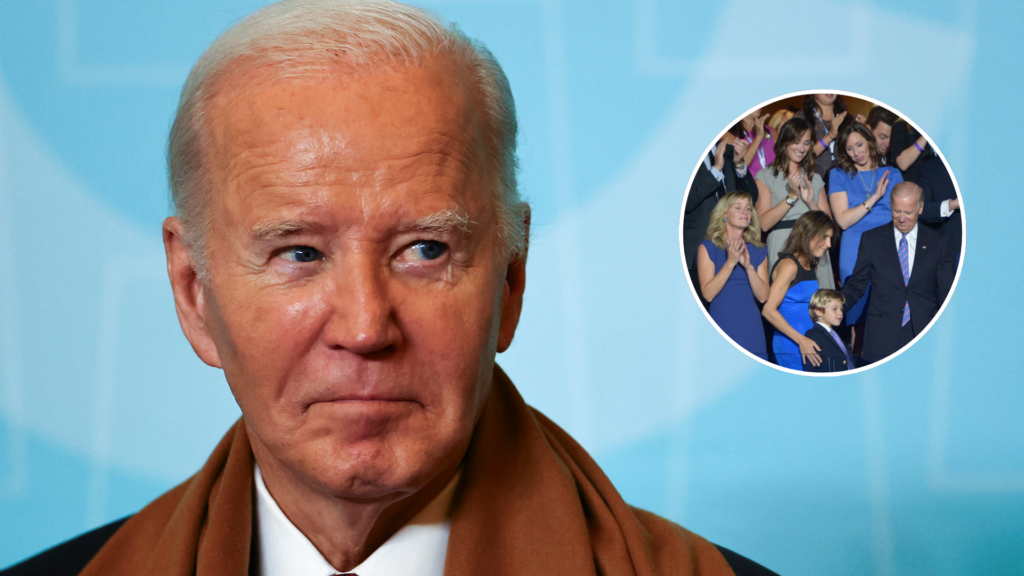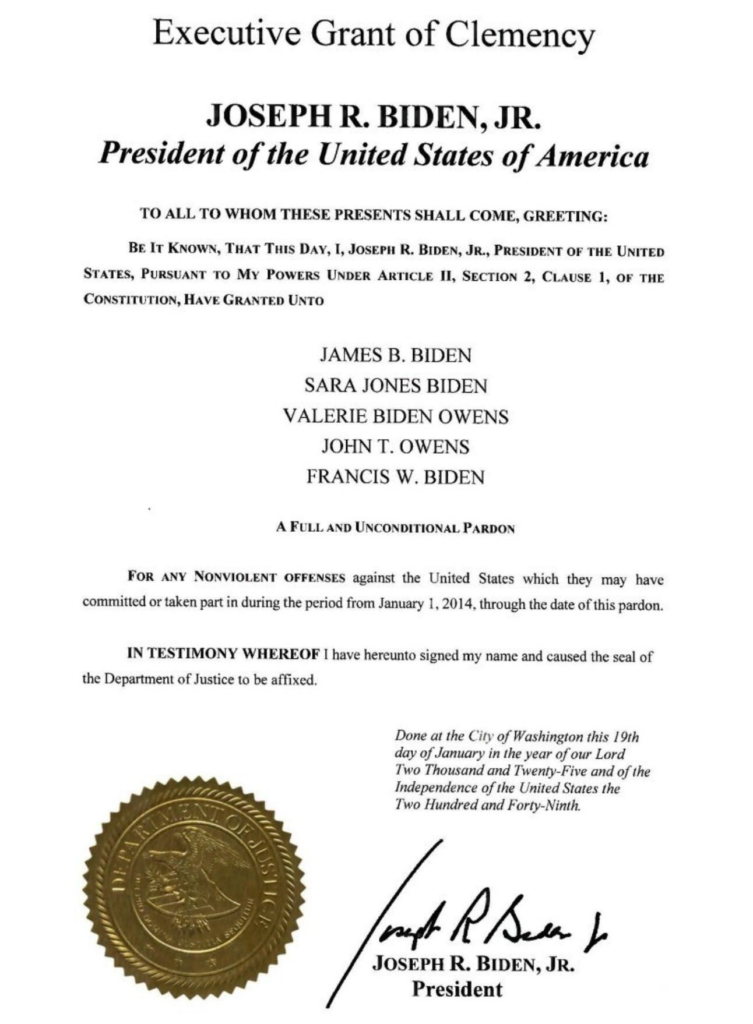
On his final day in office, President Joe Biden exercised his presidential pardon power to grant clemency to several family members, sparking widespread allegations of corruption, nepotism, and abuse of authority.
The controversial decision has raised serious concerns about the integrity of the justice system and the misuse of executive power.
The president issued pardons to his brother James B. Biden, sister Valerie Biden Owens, sister-in-law Sara Jones Biden, brother-in-law John T. Owens, and another brother, Francis W. Biden. The pardons cover any nonviolent offenses these individuals may have committed between January 1, 2014, and the date of the pardon.

In a particularly contentious move, President Biden granted unconditional pardon to his son, Hunter Biden, on December 1, 2024.
The pardon covers all federal offenses Hunter may have committed from January 1, 2014, to December 1, 2024. This includes his convictions for tax evasion and illegal firearm possession, as well as any other potential federal crimes during that time.
This action starkly contradicts President Biden’s previous assurances that he would not pardon his son, Hunter, and has drawn sharp criticism for undermining the rule of law.
The investigation into Hunter Biden was led by Special Counsel David Weiss, who faced accusations of political bias during the process.
Weiss, however, defended his work, emphasizing that the charges against Hunter were based on strong evidence and consistent with federal prosecution guidelines.
The pardon, he suggested, effectively overrides the due process that was followed in the investigation and prosecution.
Legal experts have pointed out that the U.S. Supreme Court has previously ruled that accepting a pardon implies an acknowledgment of guilt.
This has added another layer of complexity to the controversy, with critics arguing that the pardons serve as tacit admissions of wrongdoing by the president’s family members.
The decision has provoked a strong backlash from political opponents, legal analysts, and members of the public, many of whom view the move as an affront to justice and transparency.
While presidential pardons are a constitutional prerogative, their use in this instance has reignited debates over the need for greater checks and accountability in the exercise of executive clemency.
This story is still developing.

